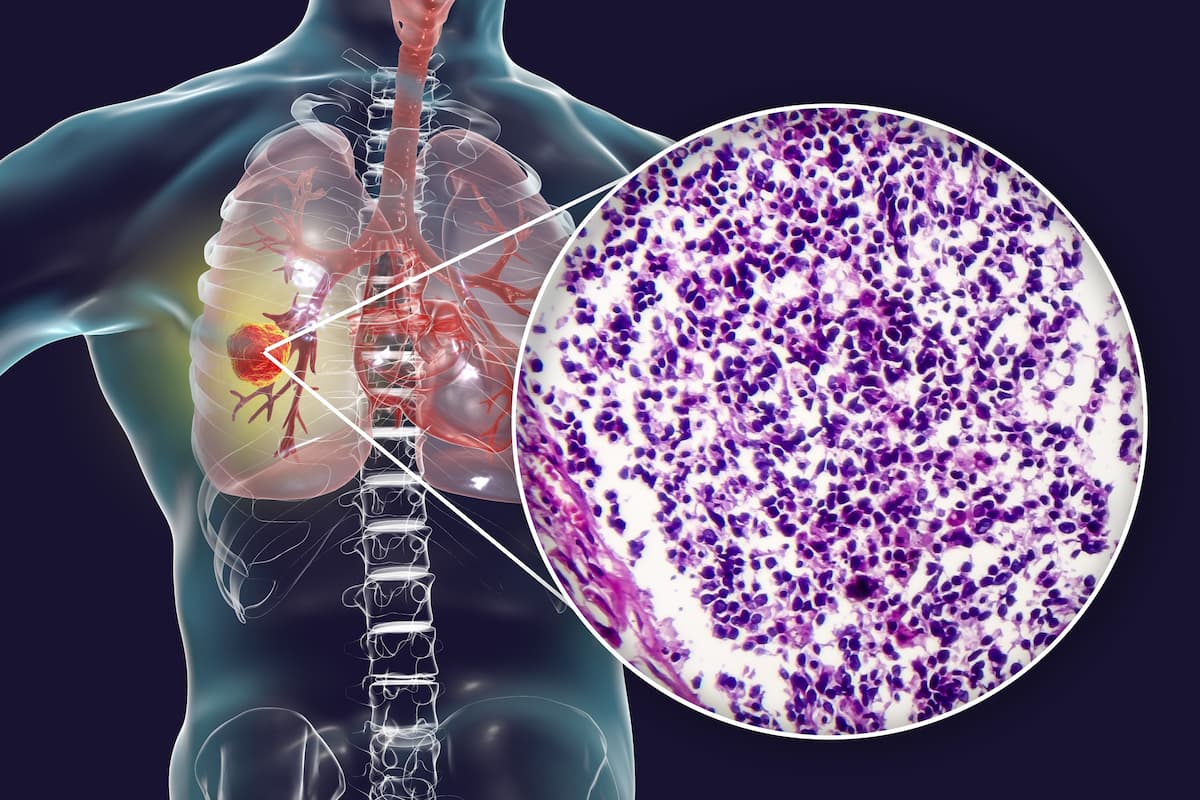China Accepts sNDA for Savolitinib in Previously Treated MET Exon 14 NSCLC
Data from a phase 3b trial support a supplemental new drug application in China for savolitinib in previously treated non–small cell lung cancer with MET exon 14 alterations.
Findings from a phase 3b trial (NCT04923945) supported the application; if approved, a new label indication will expand for patients who have previously been untreated in China. Final results were previously presented at the 2024 European Lung Cancer Conference.

A supplemental new drug application has been accepted for review by China’s National Medical Products Administration for savolitinib (Orpathys) for patients with treatment-naive or previously treated locally advanced or metastatic non–small cell lung cancer (NSCLC) harboring MET exon 14 skipping alterations, according to a press release from developers HUTCHMED.1
Findings from a phase 3b trial (NCT04923945) supported the application; if approved, a new label indication will expand for patients who have previously been untreated in China. Final results were previously presented at the 2024 European Lung Cancer Conference.
For patients who are treatment-naïve and have MET exon 14 skipping alterations, the objective response rate (ORR) was 62.1% (95% CI, 51.0%-72.3%), the disease control rate (DCR) was 92.0% (95% CI, 84.1%-96.7%), and the median duration of response (DOR) was 12.5 months (95% CI, 8.3 months-15.2 months). The median progression-free survival (PFS) was 13.7 months (95% CI, 8.5-16.6), and the median overall survival (OS) was not reached (NR) at a follow-up of 20.8 months.
In patients who had previously been treated, the ORR was 39.2% (95% CI, 28.4%-50.9%), the DCR was 92.4% (95% CI, 84.2%-97.2%), and the median DOR was 11.1 months (95% CI, 6.6 months-NR). The median PFS was 11.0 months (95% CI, 8.3-16.6), and the median OS was not mature at the median follow-up of 12.5 months.
The time to response was 1.4 months to 1.6 months in both patient populations. The safety profile remained tolerable. Grade 3 or higher drug-related treatment-emergent adverse effects (AEs) were abnormal hepatic function (16.9%), increased alanine aminotransferase (14.5%), increased aspartate aminotransferase (12.0%), peripheral edema (6.0%) and increased gamma-glutamyltransferase (6.0%).
The estimated enrollment for the trial is 163 patients, and the trial is still currently enrolling.2 The primary end point is ORR by an independent review committee evaluation. The secondary end points are PFS and the incidence of various AEs.
Patients will receive savolitinib at 600 mg by mouth once a day for those who are 50 kg or more and at 400 mg by mouth once a day for those under 50 kg. Treatment will be given in 21-day cycles until disease progression, death, intolerable toxicity, or other termination criteria which are outlined in the protocol.
Patients can enroll on the trial if they are 18 years or older, have histologically diagnosed NSCLC with a MET exon 14 mutation, measurable lesions, and an ECOG performance status of 0 or 1. Patients are also included if their survival is expected to be more than 12 weeks; have adequate function of bone marrow, liver, or kidney; and can swallow oral drugs.
For those in cohort 1, patients must have disease progression or intolerable toxicity after previous platinum-containing chemotherapeutic regimens. In cohort 2, patients must not have had any prior systemic antitumor therapy for advanced disease.
Patients are excluded from the study if they are sensitive to drugs that target EGFR, ALK, or ROS1; had other malignant tumors in the past 5 years; have received prior antitumor therapy within 3 weeks prior to the study treatment; or are receiving treatment with a small molecule inhibitor within 2 weeks of the start of study treatment. For those with malignant tumors, it must be stage I after 3 years of radical treatment except for those who have the potential for recurrence. Those with radically treated carcinoma in situ and skin cancer apart from malignant melanomas can be enrolled.
References
- HUTCHMED announces savolitinib sNDA accepted in China for treatment-naïve or previously treated patients with locally advanced or metastatic MET exon 14 NSCLC. News release. HUTCHMED. March 28, 2024. Accessed March 28, 2024. https://shorturl.at/nQWZ3
- Savolitinib for treating locally advanced or metastatic non-small cell lung cancer (NSCLC) patients. ClinicalTrials.gov. Updated September 2, 2021. Accessed March 28, 2024. https://shorturl.at/uBLPQ